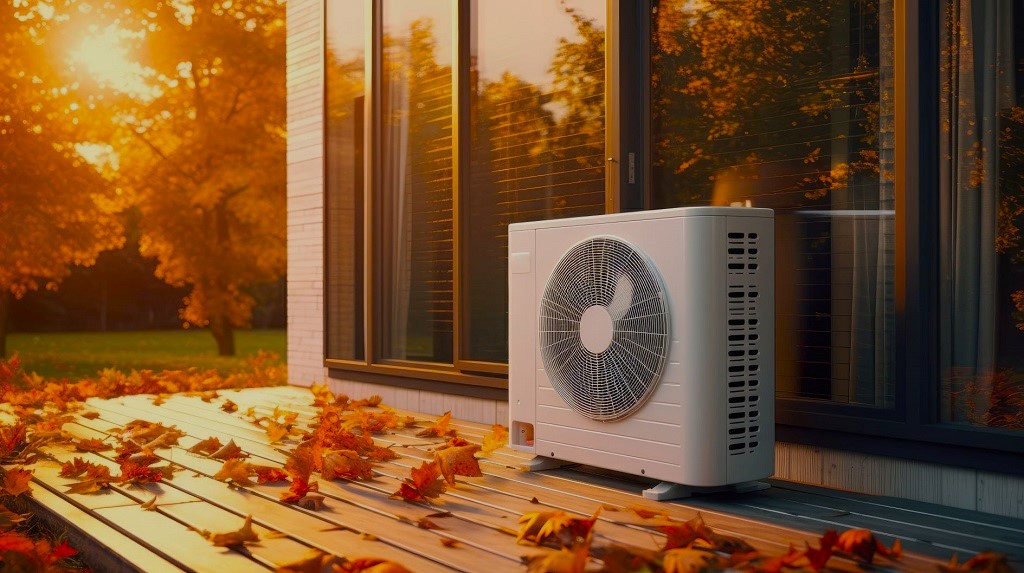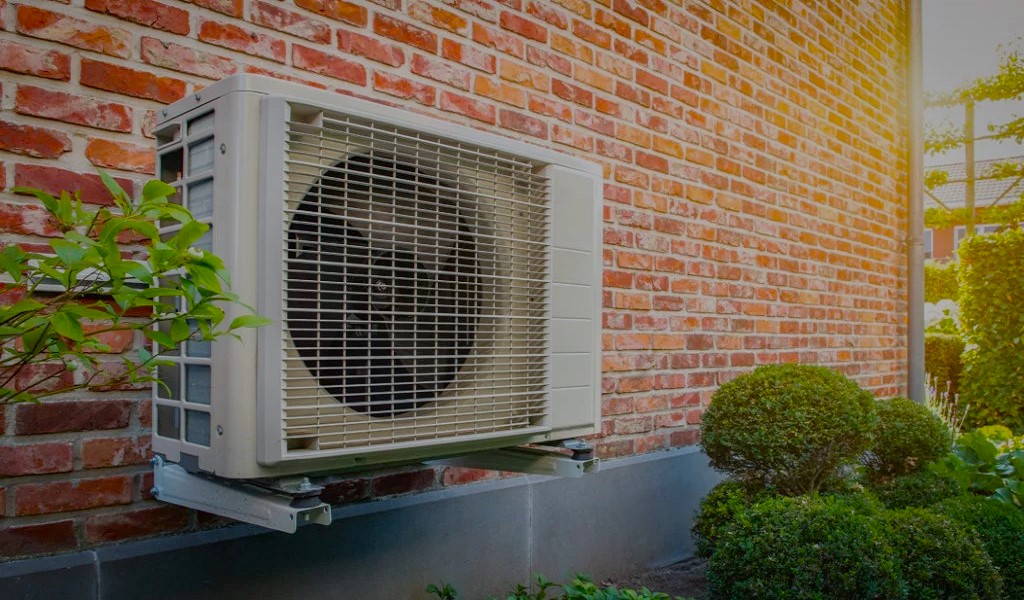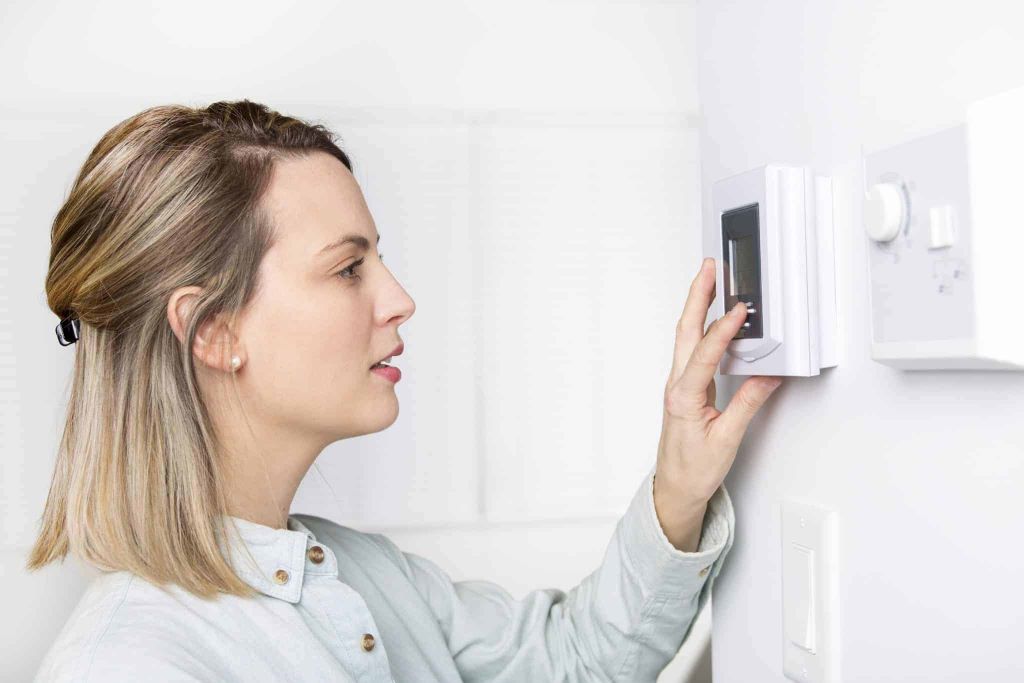Does a Heat Pump Cool as Well as an Air Conditioner? It’s a question that sparks curiosity, a tantalizing puzzle in the realm of home comfort. We all crave that ideal indoor oasis where the air is crisp and refreshing, especially during scorching summers. But do heat pumps cool as well as air conditioners, or are they merely jack-of-all-trades, master-of-none devices?
In this exploration of temperature control technology, we’ll venture deep into the world of HVAC systems to uncover the truth. From the intricacies of refrigeration cycles to the dual-purpose functionality of heat pumps that heat and cool, we’re here to quench your thirst for knowledge. So, whether you’re a seasoned homeowner or a first-time buyer, get ready to demystify the enigma of heat pump cooling and make informed choices for your indoor climate. Stay tuned for the revelations that will transform how you perceive home comfort.
Does a Heat Pump Cool as Well as an Air Conditioner?

Yes, a heat pump and an air conditioner can cool. Heat pumps are more efficient than air conditioners, which can cool your home using less energy.
Heat pumps work by transferring heat from one area to another. In cooling mode, a heat pump absorbs heat from the warm indoor air and transfers it to the cooler outdoor air. This is done using a refrigerant, a liquid that boils and evaporates at low temperatures.
Air conditioners work similarly, but they can only transfer heat from indoor to outdoor air. This means air conditioners must use more energy to cool a home than heat pumps.
In addition to being more efficient, heat pumps are also more versatile than air conditioners. Heat pumps can cool and heat a home, while air conditioners can only cool a home.
However, in some climates, heat pumps are not as effective as air conditioners. In climates with very cold winters, heat pumps may not be able to provide enough heat. Additionally, heat pumps may not be as effective at cooling homes in very hot and humid climates.
Overall, heat pumps are a more efficient and versatile option than air conditioners. However, it is important to consider your climate when choosing between a heat pump and an air conditioner.
Here is a table that summarizes the key differences between heat pumps and air conditioners:
| Feature | Heat pump | Air conditioner |
| Can cool | Yes | Yes |
| Can heat | Yes | No |
| Efficiency | More efficient | Less efficient |
| Versatility | More versatile | Less versatile |
| Cost | More expensive to purchase | Less expensive to purchase |
| Operating costs | Less expensive to operate | More expensive to operate |
The Battle of the Cooling Titans
Let’s start by understanding what exactly we’re dealing with here. Both heat pumps and air conditioners are designed to cool indoor spaces, but they do it in slightly different ways. To help you grasp the concept, let’s use a simple analogy.
Think of your home as a glass of refreshing iced tea on a hot summer day. You want to keep that tea cool, just like you want to keep your indoor space cool. Here’s how air conditioners and heat pumps do it:
Air Conditioner: Imagine dropping a few ice cubes directly into your iced tea. Those ice cubes cool the tea down quickly by absorbing heat and then melting. Similarly, air conditioners work by absorbing heat inside your home and releasing it outside, leaving your indoor space nice and cool.
Heat Pump: Now, picture a magical straw that can suck up the heat from your tea and transfer it to another glass of water. The heat pump operates similarly. It extracts heat from inside your home and pumps it outside during the summer, but it can reverse this process in the winter to heat your home.
So, in essence, both systems can cool your home effectively, but heat pumps have an extra trick up their sleeve – they can also provide heating when needed. But, back to our main question: does a heat pump and an air conditioner cool? Let’s dive deeper.
Cooling Efficiency: The Numbers Game
To determine how well heat pumps stack up against traditional air conditioners in the cooling department, we need to consider a few key factors:
- Cooling Capacity: This measures how much heat a system can remove from your home per hour, typically measured in BTUs (British Thermal Units). Air conditioners and heat pumps come in various sizes, so choosing one that matches your space’s cooling needs is essential.
- Energy Efficiency: Cooling your home can be costly if your system is an energy guzzler. Both air conditioners and heat pumps have energy efficiency ratings, like SEER (Seasonal Energy Efficiency Ratio) for cooling. Higher SEER ratings mean better energy efficiency.
- Temperature Range: Heat pumps, although versatile, have limitations when it comes to extreme cold. They might struggle to provide efficient cooling in areas with very high temperatures.
- Initial Cost and Installation: The upfront cost of a heat pump might be higher than that of an air conditioner. The installation process can also be more complex in some cases.
- Environmental Impact: If you’re eco-conscious, you might want to consider the environmental impact of your cooling system. Heat pumps tend to be more environmentally friendly since they use electricity to move heat rather than generate it.
Now, let’s address our question directly: Can a heat pump cool as well as an air conditioner?
The short answer is yes: a heat pump can cool your home as effectively as an air conditioner. However, there are some nuances to consider.
The Versatility of Heat Pumps

One significant advantage of heat pumps is their versatility. They can cool your home during the summer and heat it during the winter. It’s like having a two-in-one system that can adapt to the changing seasons.
Imagine having a jacket that’s perfect for chilly winter days and light enough to keep you comfortable on those cool summer nights. That’s what a heat pump does for your home’s temperature control. It’s a year-round comfort solution.
However, there’s a caveat. Heat pumps work best in regions with moderate climates. In extremely hot climates, they may struggle to cool as efficiently as dedicated air conditioning systems. When the mercury rises too high, heat pumps might need some backup from other cooling methods.
Energy Efficiency: A Winning Factor for Heat Pumps
Now, let’s talk about energy efficiency. Efficiency is a game-changer in this era of eco-awareness and rising energy costs. Air conditioners are known for their efficiency in cooling, and you might think they have the upper hand. But hold on because heat pumps have something up their sleeve.
Heat pumps are designed to be energy-efficient. They move heat rather than generate it, so they can cool your home using less energy. This efficiency can result in lower energy bills and a reduced carbon footprint. Some heat pumps even have impressive SEER ratings that rival high-efficiency air conditioners.
So, while both systems can keep you cool, a heat pump can do it while being kinder to your wallet and the environment. It’s like choosing a car that gets you to your destination and sips less fuel along the way.
The Temperature Challenge
While heat pumps are versatile and efficient, they have a temperature challenge. Remember that magical straw we talked about earlier? Well, it’s not as magical when it’s cold. Heat pumps might struggle to extract heat efficiently from the outdoor air when the temperature drops significantly.
In extremely cold climates, the heat pump might need to work harder to provide the same level of cooling as an air conditioner. Some systems are equipped with auxiliary heating elements to assist in these situations, but that can increase energy consumption.
So, if you live in an area with harsh winters and scorching summers, you might need to carefully weigh the pros and cons. In such cases, a dedicated air conditioner might be a more reliable option for cooling during the hottest months.
Cost Considerations
Let’s talk dollars and cents. The initial cost of a heat pump, including installation, can be higher than that of a traditional air conditioner. Heat pumps come with the added complexity of a reversing valve, which allows them to switch between cooling and heating modes. This component can make the system costlier to manufacture and install.
However, it’s essential to look beyond the upfront cost. Consider the long-term savings in energy bills and that you’re essentially getting both heating and cooling functions in one package. Over time, these savings can offset the initial investment.
It’s like choosing between a regular coffee maker and a fancy espresso machine. The espresso machine might cost more upfront, but if you’re a coffee enthusiast who plans to enjoy espresso daily, it can be a cost-effective choice in the long run.
Environmental Impact
If you’re environmentally conscious, you’ll be pleased to know that heat pumps are generally considered more eco-friendly than traditional air conditioners. The reason lies in how they operate.
Air conditioners rely on refrigerants to cool your home. Older systems often use refrigerants like R-22, known for their detrimental impact on the ozone layer. Newer systems use more environmentally friendly refrigerants like R-410A, but there’s room for improvement.
Heat pumps use electricity to move heat from one place to another, rather than relying on refrigerants to generate cooling. This makes them a greener option, especially if your electricity comes from renewable sources.
So, choosing a heat pump is like opting for an electric car instead of a gas-guzzler. You’re reducing your carbon footprint and doing your part for the environment.
The Verdict
In the scorching battle of climate control, does a heat pump cool as well as an air conditioner? The verdict is clear: Yes, a heat pump can indeed match the cooling prowess of its air conditioning counterpart. Do heat pumps cool as well as air conditioners? They cool efficiently and excel in versatility, proving their mettle in heating and cooling tasks. The intriguing secret lies in their reverse cycle technology, which allows them to shift seamlessly between roles. So, if you’re seeking a smart, energy-efficient solution that’s more than just a one-trick pony, consider the heat pump. Your comfort, efficiency, and peace of mind await your affirmative action.
FAQs
-
Can a heat pump replace an air conditioner?
Yes, a heat pump can effectively replace an air conditioner for cooling your home. Heat pumps are designed to provide both cooling and heating functions, making them versatile and efficient year-round solutions.
-
Are heat pumps more energy-efficient than air conditioners?
Heat pumps are known for their energy efficiency because they move heat rather than generate it. This typically makes them more energy-efficient than traditional air conditioners, resulting in lower energy bills and reduced environmental impact.
-
Do heat pumps work well in extremely hot climates?
Heat pumps work best in regions with moderate climates. In extremely hot climates, they may struggle to cool as efficiently as dedicated air conditioning systems and might require additional cooling solutions.
-
Are heat pumps more expensive than air conditioners?
Heat pumps can have a higher initial cost, including installation, compared to traditional air conditioners. However, their long-term energy efficiency and versatility can offset the initial investment over time.
-
Are heat pumps better for the environment than air conditioners?
Heat pumps are generally considered more environmentally friendly than traditional air conditioners because they use electricity to move heat, reducing the reliance on refrigerants that can harm the ozone layer. Choosing a heat pump can help reduce your carbon footprint.




